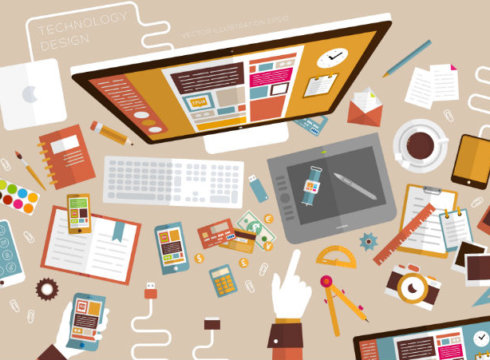Inc42 Daily Brief
Stay Ahead With Daily News & Analysis on India’s Tech & Startup Economy
When Steve Jobs introduced the iPhone back in 2007, he showed us how a phone could do so much more than just calling and messages. Suddenly, the Nokia phones that we used to flaunt started looking so dumb in comparison. Many companies followed suit and began aping the features that the iPhone boasted off. Then came Android, which many phone manufacturers adopted primarily for two reasons — Google’s prowess of their services and no upfront cost to use it.
Thanks to all these innovations, we use our phones for doing so many things today. Personally, almost all my work; be it office or personal can be done using my phone. But practically, I can do my work faster on the laptop. The phone’s battery can’t match the computer’s and also it’d be too strenuous to look at a small screen. So, in a way the smartphone cannot entirely replace a PC. Conversely, it’s not like the PC is making my smartphone redundant either. I can’t open up my computer for every computational task. These are the two devices that I need more than want.
Moving on, since the past few years, we have seen more ‘evolution’ than ‘revolution’ in the smartphone market. Every year when a company introduces its new flagship, some improvements are a given — Bigger screen. Check. Better camera. Check. More powerful processor. Check. Phone manufacturers are probably seeing the stagnation, and so they have started investing in other categories.
In 2010, Apple again quaked the industry with their iPad, and everybody else again followed suit by creating their version of this now re-energized product line. Last year, Pebble kickstarted the smartwatch category by creating a smartwatch that actually worked well. Today, “Wearables is the next big thing” is a statement that I am tired of hearing. I am really skeptical about it being any bigger than the market that exists for phones and computers. Same goes for the tablet. Let me tell you why.
Today, most smartwatches need to be connected to your phone in order to work. So one cannot only buy a smartwatch and use it independently. There are ‘experiments’ like the Samsung Gear S that can be used without pairing to a smartphone, but there’s no way it can act as a complete replacement. As of now, the smartwatch targets an even smaller set of audience than a tablet. Most college students barely get their phone of their choice, a smartwatch is out of the question. Elders too took a long time to adapt to smartphones; so it would be tougher to sell the idea of a smartwatch to them. But then there will be exceptions to this rule. Just like a lot of people bought iPads or other tablets and barely used them, some may invest in the smartwatch too. After all, these gadgets do fancy a lot of people.
Now, let’s take a look at the tablet. It does certain stuff that the smartphone and PC can do; but it cannot oust either. The iPad was a leader by big margin in the tablet market. But its sales have fallen, possibly due to cheaper options being available. Most tablets don’t have the full-fledged connectivity and complex software that a computer has. It is also way bigger screen than a phone, so it wouldn’t fit in your pocket easily. If you take the smaller tablets into consideration, then the problem is that phones are catching up in screen size. There is very small difference between the screen size of the Nexus 6 and the Nexus 7, or the iPhone 6 Plus and the iPad Mini.
Then as Tim Cook said, the upgrade cycle of a tablet is longer than a smartphone. It is also the type of device that is typically shared within the family. This may actually be one of the reasons for the slump in sales. For me, the tablet is not used as frequently as other devices. Many a times I end up reading stuff on the phone while the iPad lies on the table. To be honest, I mostly forget that there is an iPad at home and only remember about it when my phone needs charging. If I had to put them in an order of importance, this is how it’ll be for me: Smartphone—PC—Tablet—Smart Watch.
Personally, I’m against wearables as already my phone keeps buzzing throughout the day. Now I do not want to add one more device to keep me busy online. In fact, at home I tend to keep the phone aside to just to spend some time off the net. Imagine another device buzzing on my wrist. No, I wouldn’t want that.
But that’s just me — I know of people who depend on their smartwatch or tablet. I am not saying that the tablet or a smartwatch won’t sell. But one thing’s for sure — they will never surpass the sales of the PC or a phone.
Note: We at Inc42 take our ethics very seriously. More information about it can be found here.


